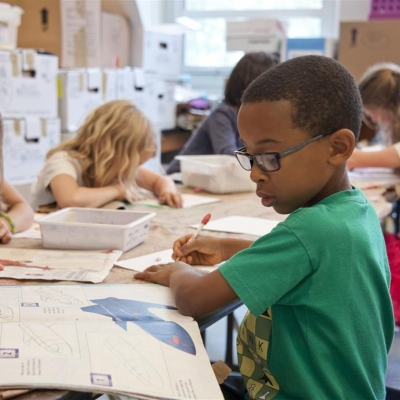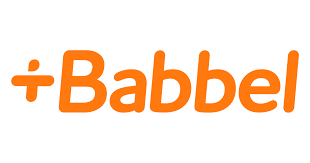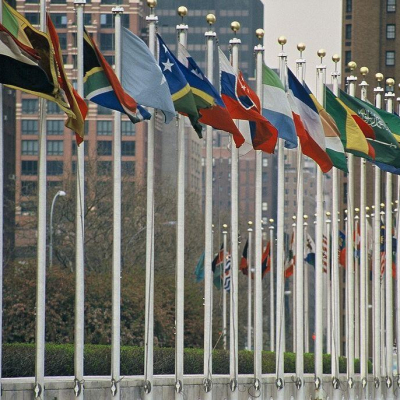An Overview Of The Education System

Being an expat in the Czech Republic is an adventure of its own. Now, if you're looking to be educated during your time as an expat, chances are, you'll have questions on how the Czech educational system works, and whether or not it's something to pursue during your tenure.
In this article, we will explore the education system of the Czech Republic - from the system itself to its different kind of schooling.
The Czech Republic's Education System
While the majority of the education system is free, preschools are paid for by parents, because of childcare purpose. The university system is free, unless students need:
- Food and Housing
- Textbooks
- Basic supplies
- Health insurance (for students up to 26 years of age)
A typical school year starts on the first weekday of September, and concludes on the last weekday of June, with final exams at the end of each semester. School holidays are as follows:
- Autumn holidays are two working days around Independence Day.
- Christmas (or winter) lasts between 9 and 12 days.
- Midterm break is one day.
- Spring (February and March) is one week long.
- Easter is 3 days long.
- Labor Day
- Summer is sixty-two days long.
The system is divided into several groups, based on whether or not they're mandatory:
- Preschools (for 2- 5-year-olds) are not mandatory [nursery and kindergarten].
- Elementary (from 6 to 15 years old), on the other hand, are mandatory.
- Secondary schools are also mandatory.
- Universities are for those who want to further their education.
Let's dive deeper in the various grade levels in the Czech Republic educational system: from the nursery years to higher education:
Nursery
Nurseries and daycare can either be public and private, depending on you – the expat – in the Czech Republic. In fact, parents are allowed to leave their children at a nursery or daycare center for up to 46 hours.
Costs vary, depending on which nursery or daycare you go to in the Czech Republic. According to EasyExpat.com, private nurseries in the Czech Republic can cost around 7,000 CZK per month (~€270) for a few days a week for half-day care, while full-time care can cost up to 15,000 CZK per month (~€600). Public – state (or jesles) – nurseries are cheaper; however, if you receive maternity benefits, they may be forfeited if your child attends these nurseries for more than 5 days in one calendar month.
Parents may qualify for a tax break (Školkovné) on monthly tuition, regardless if your child attends public or private nursery. According to DoMyTax, to apply for a Školkovné, you'll need to provide the following:
- A qualifying preschool institution
- Street address
- First and last name of your child
- The child's birthday
- Placement fee amount, AND
- A signature from a preschool representative
In addition, other qualifications that DoMyTax suggests for the tax break include:
- The child is regularly attending their nursery for at least 6 hours per day.
- The child is involved in children's groups outside your family circle.
- The tax break will fulfill your child's needs. AND,
- Your child is older than 1 year old. (Services will last until elementary.)
Kindergarten
Kindergarten in the Czech Republic is treated as a pre-school facility for children ages 3 to 6. In kindergarten, play and social interaction are taught. Plus, a typical school day is done in one of two ways:
- As a half-day, where children return home after lunch, OR
- As a full day, where children go home in the late afternoon
Public kindergarten schools in the Czech Republic tend to cost a few hundred CZK per month, versus the more expensive private and church alternatives. However, costs are lowered to 30 CZK per month (~€1.20) during the last year of public school, since you'll only need to pay for school meals and not for tuition.
School starts in September 1, and ends in June 30, which is something to consider when choosing schools. To enter the next level – elementary – children must demonstrate the following:
- Be physically and mentally capable
- Sit at the table
- Eat with a spoon
- Drink from a cup
- Know personal hygiene, AND
- Blow their nose
These mandatory skills are assessed by parents and teachers, and are encouraged, since preschool education is already guaranteed to them as a stepping stone for elementary school.
Elementary
Elementary is the first stage of formal education in the Czech Republic, taking about 9 years to complete. Here, basic subjects (i.e., English, science, literature, history, etc.) grow more complex. Plus, Czech language and literature are encouraged.
A typical school day lasts between 8:00 AM and 1:30 PM. In that case, gymnasiums are encouraged to students after their 5th or 7th year in elementary, as a way to offer additional study other than just the regular education that ends at 1:30 PM.
After-school clubs are also available for children, in case parents can't meet the 1:30 PM release. Such clubs include:
- Embera Center – Czech and English lessons provided; extracurricular activities (i.e., summer/winter camps, pyjama parties, birthdays, etc.) are held on Fridays and Saturdays
- In Baze – A free club where children can learn Czech
- Two Hour School – English literacy and learning are taught
Public elementary schools are free to attend – you'll only need to pay for school supplies.
Middle And High School Education
Middle school in the Czech Republic is from grades 6 to 9 (either at the same school as elementary, or separate), while high school is from grades 10 to 12. According to OECD, 69.8% of students ages 15 to 19 are enrolled in vocational programs, in addition to regular schooling.
Classes are even more complex, with subjects like biology, chemistry, physics, etc. During high school especially, students will be subject to final exams, which include:
- An exam to have students demonstrate their knowledge of the Czech language
- Several exams in what the student specializes in, AND
- An exam involving a topic of the student's choice
Higher Education
To attend higher education (universities) here, students must take and pass an entrance exam (written and or oral). The entrance exam that the student takes will depend on the college that they want to go to, and will test them on certain knowledge and skills.
Here's an overview of the degree program in the Czech Republic:
- The Bachelor (bakalář) course lasts from 3 to 4 years.
- The Master (magistr) course lasts from 1 to 3 years. AND,
- The Doctor (doktor) course lasts from 3 to 8 years.
- The Engineer (inženýr) degree is offered in postgraduate schools for technology, economics, or agriculture.
Public universities are free of charge to students attending.
Different kind of schools
Public Schooling
Public schools are accessible, whether in a rural area or an urban area, just as long as you have a permanent residence. Plus, speaking the Czech language is not mandatory, since most teachers in public schools are understanding of non-native students.
Private Schooling
Private schools in the Czech Republic are in major urban areas, and are partially funded by the government and tuition. In addition, Czech is taught, regardless of the student's strength in that language.
International Schooling
International schools in Czech teach in English, and follow standard English curricula. These schools are only located in urban areas, with tuition being costly, unless you request tuition reimbursement from your employer as part of your expat relocation package.
Conclusion
Ultimately, when seeking education in the Czech Republic as an expat, you'll need to look at your options. While there are many possibilities to pursuing an education there, it's still important to look into the benefits of all said possibilities. If you want to learn while being an expat in the Czech Republic, then it's best to look at your long-term educational goals, and get into the best schooling possible.
About the author
Ashley Halsey is a writer and editor at Lucky Assignments. As a professional writer, she has been involved in many writing projects nationwide.
- Czech Republic: How to become a Czech Citizen
- Czech Republic: EasyExpat.com is looking for networkers/helpers for...
- Czech Republic: EasyExpat.com recherche des animateurs pour notre...
- Czech Republic: Activities in Czech Republic during the school holidays
- Czech Republic: Activités en République tchèque pendant les...
- My Life Abroad -
A selection of expat stories

"A fun compulsive read!"
J. Matcham, Amazon
"I strongly advise people ready to live abroad to read this book!"
Patrice, Amazon

 International Schools in Czech Republic
International Schools in Czech Republic 5 Top International Education Systems For Expat Kids
5 Top International Education Systems For Expat Kids Same language, different ball-game
Same language, different ball-game Babbel
Babbel Embassies and Consulates in Czech Republic
Embassies and Consulates in Czech Republic